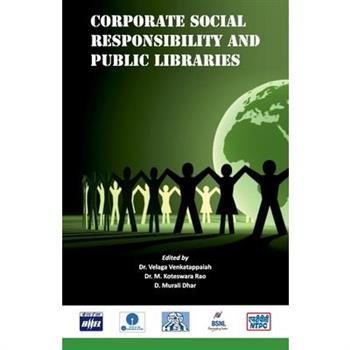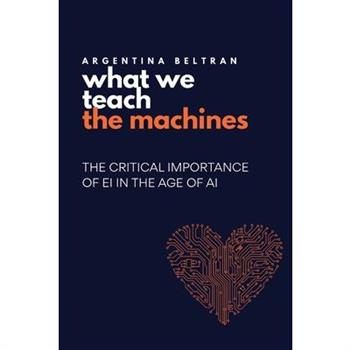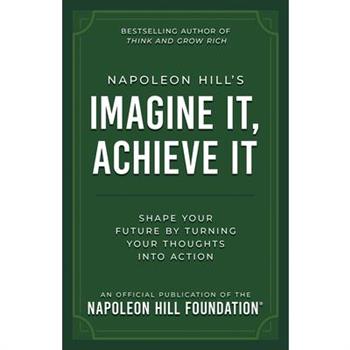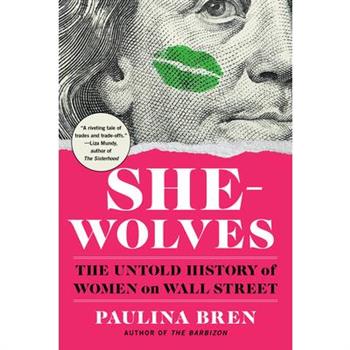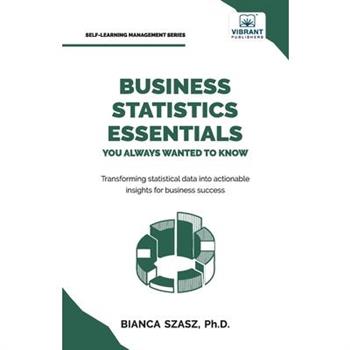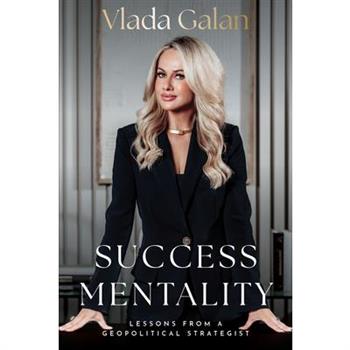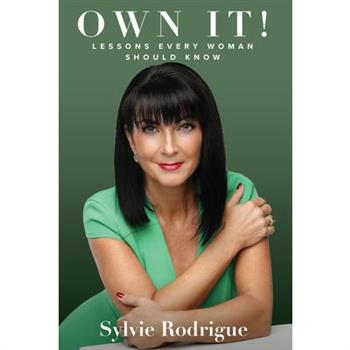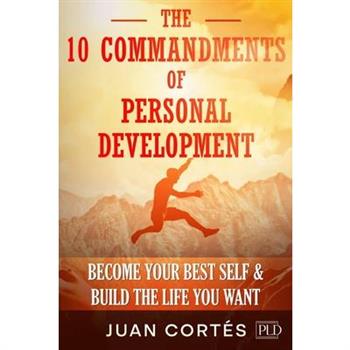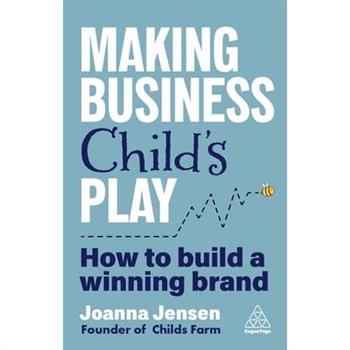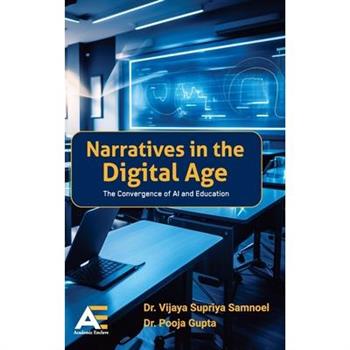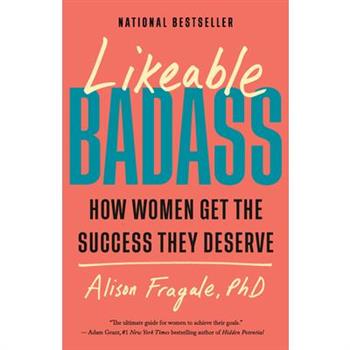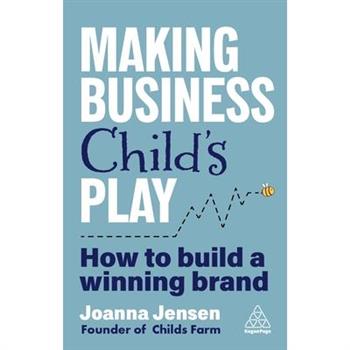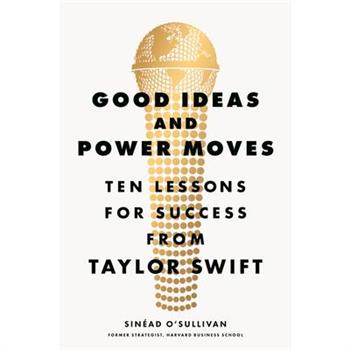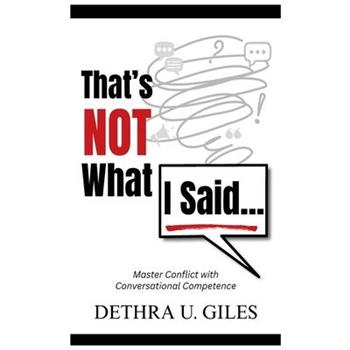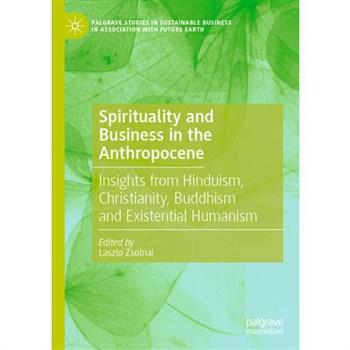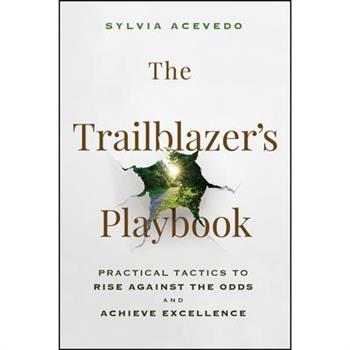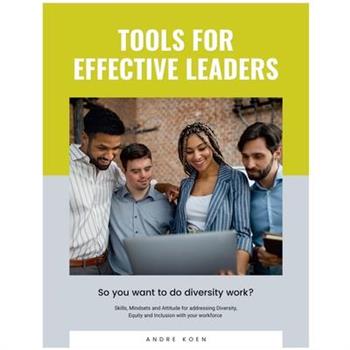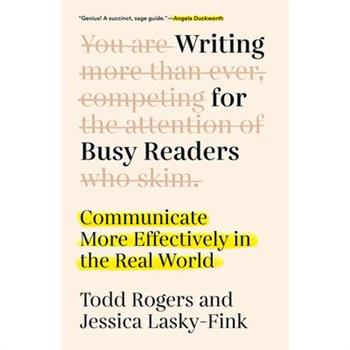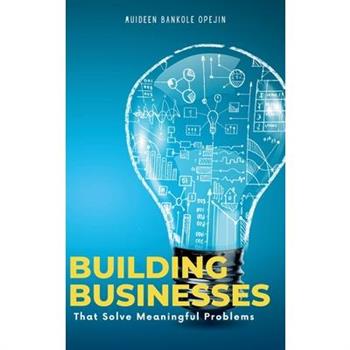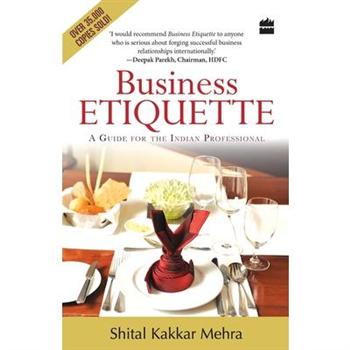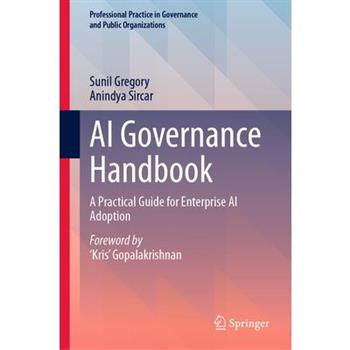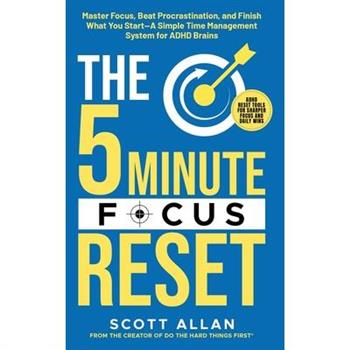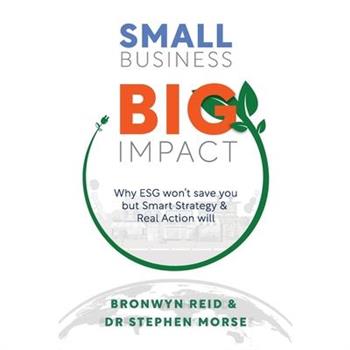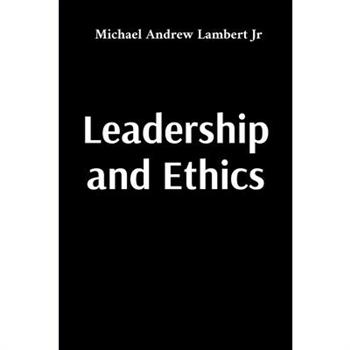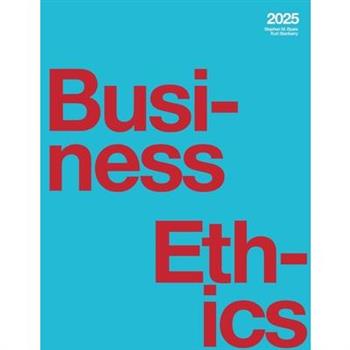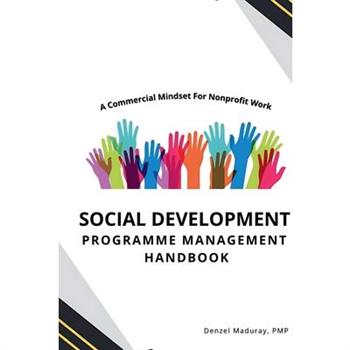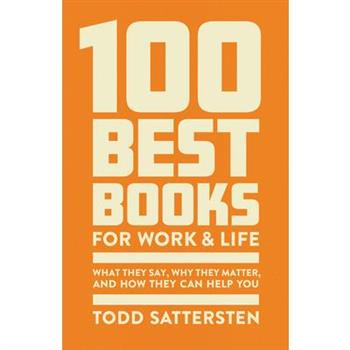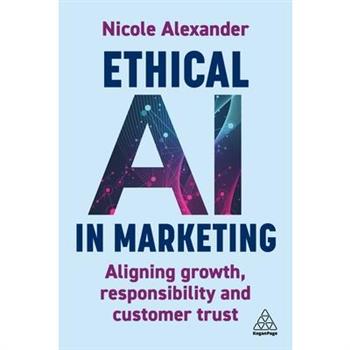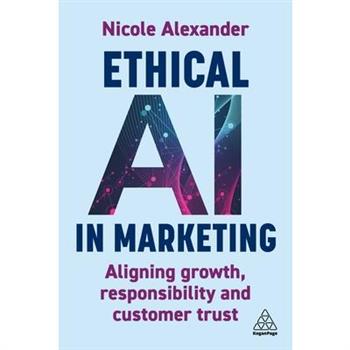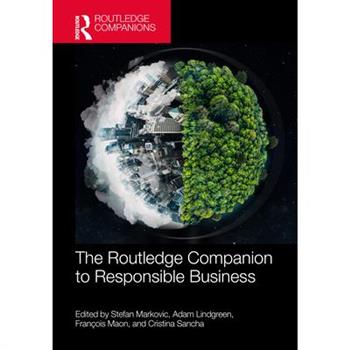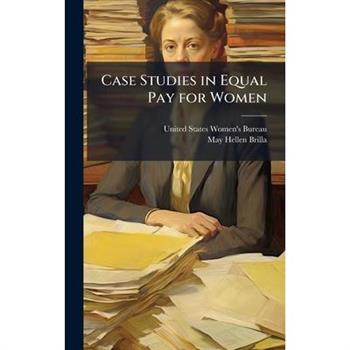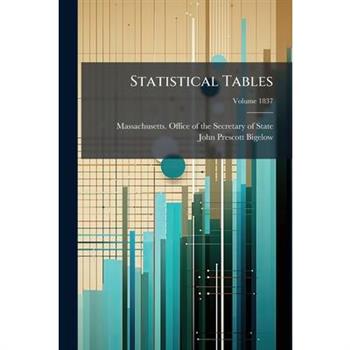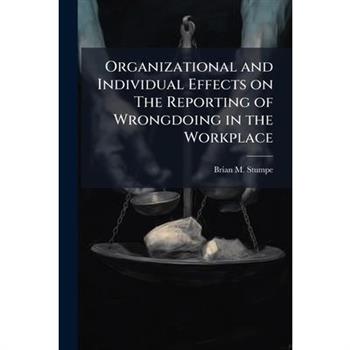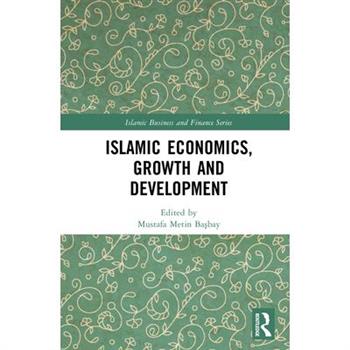Gen-X the Adult Era
April Raque nearly killed herself with the stress of corporate America's high-speed conveyor belt. When her own health bucked her off it mid-way through life, she landed with a thud. And then she did as any good Gen X-er would: she figured it out. Using her formal education in health, wellness, and design alongside the trademark independence of her generation, April crafted her own mid-life chapter into a place of joy. Now you can become the boss of your midlife, too. Ollie, ollie, oxen free! The water hose is flowing and the street lights are nowhere near turning on. Climb up in the clubhouse and let's talk about mid-life bodies, managing the challenges and changes unique to this phase, and designing it all into a life of wellness.
Stay Focused
Endlessly distracted? Rob Hatch gets it. And he's here to show you how to reclaim your time and attention in a world of technology that's trying to take them away from you.Improve your creativity, happiness, and success, in just 6 minutes!
She-Wolves
First came the secretaries from Brooklyn and Queens--the "smart cookies" who saw that making money, lots of it, might be within their grasp. Then came the first female Harvard Business School graduates, who were in for a rude awakening because an equal degree did not mean equal opportunity. But by the 1980s, as the market went into turbodrive, women were being plucked from elite campuses to feed the belly of a rapidly expanding beast, playing for high stakes in Wall Street's bad-boy culture by day and clubbing by night.In She-Wolves, award-winning historian Paulina Bren tells the story of how women infiltrated Wall Street from the swinging sixties to 9/11--starting at a time when "No Ladies" signs hung across the doors of its luncheon clubs and (more discretely) inside its brokerage houses and investment banks. If the wolves of Wall Street made a show of their ferocity, the she-wolves did so with subtlety and finesse. Research analysts signed their reports with genderless initials. Muriel "Mickie" Siebert, the first woman to buy a seat on the NYSE, threatened she'd have port-a-potties delivered if the exchange didn't finally install a ladies' room near the dining room. The infamous 1996 Boom-Boom Room class action lawsuit, filed by women at Smith Barney, pulled back the curtain on a bawdy subculture where unapologetic sexism and racism were the norm.As engaging as it is enraging, She-Wolves is an illuminating deep dive into the collision of women, finance, and New York.
Business Statistics Essentials You Always Wanted to Know
Success Mentality
Success is not an accident. It's a recipe that you must follow. There are tools that you will need to get there. By learning from a geo-political strategist's career who has worked with Presidents and Prime Ministers worldwide, Vlada Galan is going to teach you the steps for achieving more and changing your mindset. From walking in the war-torn streets of Juba, South Sudan, to the Presidential palaces of Europe, or sitting with African warlords negotiating hostage deals in the Congo, her life lessons will teach you how to compete, strategize and accomplish. LEARN TO: Make hard life decisions for long term success. Overcome imposter syndrome. Eliminate distractions that will hold you back in life. Vlada Galan is highly regarded for crisis management experience, track 2 diplomacy skills and international lobbying work. Her work experience includes Austria, Azerbaijan, Colombia, Indonesia, Israel, Kazakhstan, Kosovo, Mexico, Montenegro, Serbia, Ukraine, United Arab Emirates, Zambia, and Zimbabwe. She has an MLA from Harvard in Internaional Relations and has appeared on CNN, Fox News, Newsmax. In August 2023, Vlada was awarded a medal from the Minister of Defense of Ukraine, for her support and assistance to her home country.
Own It!
Most successful women feel like an imposter, inadequate, or not goodenough at some point in their professional and personal lives. Addfeelings of fear of the unknown and stepping outside their comfortzone, they end up living unfulfilled lives. Through her unusual pathto success after leaving home at just 16 years old, Sylvie has learnedinvaluable life lessons. She identifies issues that impede successand happiness. LEARN CONCRETE SOLUTIONS TO: Overcome adversity Conquer imposter syndrome Deal with intimidation Earn success without depending on othersSylvie is a partner at Torys LLP, a large international business law firm where she leads its National Class Action practice and the Montreal office she founded. Recognized as one of the county's Top litigators by various organizations, including 2021 Litigator of the Year, her legal career spans over 32 years. A wife and a mother, her pro bono work and broader contribution to the community has led to her twice being recognized as one of Canada's Top 100 Most Powerful Women.
Indispensable
From the bestselling author of No Bullsh*t Leadership comes an indispensable guide on how to thrive and become a priceless asset in the workplace. The working world has changed. In an era where the cost of living is rising and competition is rife, it's no longer good enough to have a university degree, a cushy corporate job and a strong work ethic. More and more, people have to stand out to make it. Knowing how to become indispensable is more important than ever - whether that's as a junior employee just starting out, a mid-level manager looking to take the next step, or a senior leader who needs to keep their skills sharp and their mind fresh. Not every indispensable employee is the same - you might be a smart innovator, or a reliable worker bee, or something else entirely - but the principles that underline indispensability are consistent. From perfecting your attitude and applying your aptitude perfectly, to improving your negotiation skills and learning how to network like a champion, Indispensable is the guide to workplace excellence that you didn't know you needed.
Making Business Child's Play
A behind-the-scenes look at how a simple idea born from a real need grew into a brand that transformed a category. From having a viable idea to taking on an established market with a scalable, purpose-led brand, Making Business Child's Play reveals what it takes to be a successful challenger in Fast Moving Consumer Goods (FMCG). Told with warmth, clarity and real-world examples, Joanna Jensen shares the journey, decision-making process, setbacks and turning points that defined the early years of Childs Farm, the UK's leading baby & child personal care brand. If you have a great business idea but feel daunted by the idea of bringing it to life, this book will show you what's possible and how to get there.
Narratives in the Digital Age
The book "Narratives in the Digital Age" explores the diverse applications of AI in enhancing teaching, learning, and assessment methodologies specifically in Language and Literature leaning. The chapters in this book emphasizes AI's role in providing interactive simulations, augmented reality experiences, and intelligent tutoring systems, which bridge theoretical knowledge with practical application. Each chapter offers unique insights into the evolving synergy between AI and diverse disciplines, making this work a fascinating read for scholars and enthusiasts alike. Ultimately, the book envisions a future where AI and human intelligence synergize to create more effective, inclusive, and personalized educational experiences. This integration fosters an engaging, dynamic learning ecosystem that prepares students for future workforce demands and nurtures creativity and innovation.
Likeable Badass
NATIONAL BESTSELLER - Behavioral scientist Alison Fragale offers powerful new insights and a practical playbook for women to advance in any workplace, full of tips, tricks, and strategies to help secure that elusive corner office. Over decades of research, speaking engagements, and mentorship, psychologist and professor Alison Fragale encountered recurring questions from high powered and early career women alike: How do women thread the needle of kindness and competence in the workplace? How can women earn credit for their accomplishments, negotiate better, and navigate complex office politics without losing the goodwill of their peers? Fragale investigated and determined that many women's workplace issues boil down to what psychologists call status: the perception of them by others. No amount of power-- no degree, title, or paycheck-- will raise a woman's workplace stature unless it also affects how others see her. Acknowledging this roadblock, Fragale pulls back the curtain on how we can change how others see us by developing our standing as a "likeable badass." By cultivating perceptions of warmth and assertiveness, women can achieve the kind of reputation that leads to a seat at the table and a fulfilling career path. Likeable Badass is equal parts behavioral science and life hacks, weaving together rigorous research with actionable advice and impactful stories from a diverse array of women. This is a warm, heartening book written for women, their allies, and anyone who struggles to rise, and wants evidence-based, practical strategies for success, served with a side of inspiration and humor.
Making Business Child's Play
A behind-the-scenes look at how a simple idea born from a real need grew into a brand that transformed a category. From having a viable idea to taking on an established market with a scalable, purpose-led brand, Making Business Child's Play reveals what it takes to be a successful challenger in Fast Moving Consumer Goods (FMCG). Told with warmth, clarity and real-world examples, Joanna Jensen shares the journey, decision-making process, setbacks and turning points that defined the early years of Childs Farm, the UK's leading baby & child personal care brand. If you have a great business idea but feel daunted by the idea of bringing it to life, this book will show you what's possible and how to get there.
365 Simple and Powerful Habits
If you're reading this, it's because you want to change your life! Why is it that some people in the world are so successful while others are not? What if I told you that they share certain habits? Habits that you can start adopting in your own life today. Is it easy? No, building a successful habit requires focus, discipline, and a lot of willpower. Along the way, there will be many challenges: people who don't want to see you succeed, and even your own brain, which does everything it can to keep you from spending energy. Believe in yourself! There are no shortcuts on the path to personal growth. It's one step at a time. Make the decision! The power of choice is in your hands. You'll be amazed at the power you have! This book contains 365 habits to transform your life. Once achieved, the results are truly powerful!
Good Ideas and Power Moves
A guide to the 10 power moves that have built Taylor Swift's superstardom and empire, from a former Strategist at Harvard Business School's Institute for Strategy Taylor Swift's genius is not limited to her singing and songcraft: as the founder of her own multi-billion dollar enterprise she has higher returns than 99.9% of hedge funds, and has built a stronger global corporation than nearly every other American conglomerate CEO. She is the only person that the US Federal Reserve and European Central Bank track with precision. She has a larger impact on the economy than most economists that have ever lived, and has done more for US antitrust law than any sitting member of Congress. There is a lot to learn from Taylor Swift. Global investment fund manager and former head of Strategy at HBS (and Swiftie!) Sinead O'Sullivan taps into the same genius that sells out stadiums and shuts down the internet to give Taylor--the CEO, the strategist--the respect she deserves. O'Sullivan sums up Swift's business savvy into ten big, teachable lessons, including: -Build a World (Not a Product) how to create value that is greater than the sum of its parts (or, how Taylor created the fan-centered Swiftverse that fosters community, belonging, and off-the-charts engagement) -Be Anti-Fragile how to embrace volatility, build resilience, and thrive in uncertainty--when your competitors can't (or, how Taylor gamed the chaos of Covid shutdown to own the airwaves)-Don't Just Play the Game, Change It how to rewrite the rules on your own terms when your chips are down (or, how Taylor almost lost control of her music catalog to Private Equity--but re-recorded all her masters and took them back)
That's Not What I Said
That's Not What I Said: Learn Conversational Competence and Change the Outcome is more than a communication book-it's a field guide for real-life leadership in messy, high-stakes moments. Built on the proven DARE(TM) Model (Describe, Acknowledge, Review, Engage), this step-by-step approach will shift how you show up in every conversation that matters. Whether you're leading a team, navigating relationships, or just trying to avoid yet another workplace landmine, this book will help you stop avoiding, start engaging, and finally get to the real issue.With humor, wisdom, and over 5,000 leaders' worth of lived experience behind it, this book teaches you the skill no one formally taught but everyone expects you to have: how to talk-and listen-when it counts.
Spirituality and Business in the Anthropocene
This contributed volume collects innovative papers by scholars from Europe, India, and the USA to investigate how spirituality can contribute to renewing business in response to the challenges of the Anthropocene era. These challenges include climate change, biodiversity loss, ecosystems collapse, growing inequality, wellbeing deficiencies, and social unrest. Using insights from Christianity, Hinduism, Buddhism, and Existential Humanism the book explores the spiritual aspects of the present ecological, economic, social and ethical crises, materialist worldviews in the Anthropocene and their relation to crises. Further, it reinterprets personalism for embracing ecological values, presents working models of spiritually-based sustainability practices in business, and discusses the integration of spirituality into business education to foster a greater understanding of our interconnectedness with the planet and with each other. Part of the Palgrave Studies in Sustainable Business in Association with Future Earth book series, this interdisciplinary work will be of great interest to scholars and students of sustainability, spirituality in business, leadership, and many other fields.
The Trailblazer's Playbook
Discover how you can achieve the impossible from someone who's done it before In The Trailblazer's Playbook: Practical Tactics to Rise Against the Odds to Achieve Excellence, celebrated executive, entrepreneur, and engineer and rocket scientist Sylvia Acevedo delivers an insightful and transformative manifesto for everyone who dares to defy the odds and achieve greatness. The author chronicles the relentless pursuit of excellence and the resilience you'll need to overcome extraordinary challenges. The book takes you through an odyssey of the most pivotal moments in Acevedo's life, chronicling her trailblazing career and the tragedies she overcame to achieve personal growth. It's packed with practical advice and actionable strategies you can apply immediately to your own life to help you conquer obstacles, overcome loss, embrace risk, and seize opportunities. You'll also find: "The Story of the Three No's" - a demonstration of how relentless determination can turn setbacks into opportunities Discussions of the importance of personal and mental health and the freedom offered by forgiveness Strategies for defining and communicating your value in a way that's aligned with your strategic goals Perfect for professionals, aspiring leaders, and anyone driven to overcome challenges and realize their full potential, The Trailblazer's Playbook is also a must-read for early-career professionals and students just beginning their own careers.
Writing for Busy Readers
Writing well is for school. Writing effectively is for life. Todd Rogers and Jessica Lasky-Fink offer the most valuable practical writing advice today. Building on their own research in behavioral science, they outline cognitive facts about how people actually read and distill them into six principles that will transform the power of your writing: Less is moreMake reading easyDesign for easy navigationUse enough formatting, but no moreTell readers why they should careMake responding easyIncluding many real-world examples, a checklist and other tools, this guide will make you a more successful and productive communicator. Rogers and Lasky-Fink bring Strunk and White's core ideas into the twenty-first century's attention marketplace. When the influential guides to writing prose were written, the internet hadn't been invented. Now, the average American adult is inundated with digital messages each day. With all this correspondence, capturing a busy reader's attention is more challenging than ever. This is how to do it.
Building Businesses That Solve Meaningful Problems
Business Etiquette
The first interview. Handling a difficult boss. The power of words. Networking. Small talk. Dressing for a cocktail dinner. Holding chopsticks. Drinking wine. Twitter etiquette. Sexual harassment in office. Remembering names. Receiving compliments. Women travelling alone. Thank you notes. The opportunities created by a fast-globalizing world have led to executives jet-setting across the globe wining and dining, negotiating, and networking for business. Indian executives, who are brand ambassadors of both their company and their country, too are making a mark on the global stage, and increasingly find themselves in a number of situations where their people skills can make all the difference. Business Etiquette shows us the art of creating a positive impression through the ABC of good manners: Appearance, Behaviour, and Communication. Shital Kakkar Mehra, one of India's best-known corporate etiquette trainers, teaches us how to create our own brand, dine with grace, mingle with ease and conduct business keeping in mind racial, gender, and cultural diversities. It's a one-stop guide to side-stepping those embarrassing slip-ups and awkward gestures, and sailing through the complexities of modern-day office life with ease.
Mindsense
People that lead their life the fullest share a common secret: They find and develop their strengths to become their best self.MINDSENSE: A Strengths-Based Approach to Becoming Your Best Self is not your typical self-help book. Its thirteen chapters provides practical applications of spotting and developing your strengths. Unlocking your potential and preparing you for a journey of enlightenment.Dr. Mike shares his unique knowledge of positive psychology to help you reprogram your mind to live your life inside-out as opposed to outside-in. At its core, the book focuses on the concept of self-awareness and knowing thyself. Each chapter includes real-life stories and vignettes that are essential for true enlightenment.MINDSENSE emphasizes the principle of forgetting things that happened to you in the past and focusing on where you are right now-without worrying about the future. The art of letting go helps you to detach from the crutches that hold you back. This is not a one-time destination but a continuous, engaging process that people that are enlightened commit to. This understanding is crucial to personal wellbeing and an enlightened life, and MINDSENSE will guide you in staying engaged and committed to the process of enlightenment.MINDSENSE: A Strengths-Based Approach to Becoming Your Best Self promises: To help you stop overthinking.To help you stop comparing yourself to others because you are more than enough.To build superior focus on acting like you're a millionaire.Begin your path to greatness today-because the best investment you can make is in improving yourself first before attempting to improve others. Your enlightenment journey starts now!
The 5-Minute Focus Reset (for ADHD Brains)
If you're constantly distracted, overwhelmed, or mentally drifting, you're not the problem-your system is.This book gives you a better one.Built for real-world ADHD brains and anyone who struggles with follow-through, The 5-Minute Focus Reset offers a practical, repeatable framework for reclaiming your attention in five-minute blocks-no pressure, no shame, and no rigid rules.Whether you're a creator, entrepreneur, professional, or simply trying to finish what you start, this book helps you design focus rituals that actually work when your brain doesn't want to cooperate.Inside this book, you'll discover: How to stop spiraling and interrupt distraction loops before they take overThe science behind dopamine-driven drift-and how to counter itA customizable Focus Stack for structuring your day without overwhelmEmergency reset strategies to recover quickly from overstimulationMicro-win methods to build momentum and trust in your follow-through10 ADHD-friendly tools you can print, use, and repeat-anytime you fall off trackThis isn't about discipline through willpower. It's about returning to clarity through short, actionable resets.If you've struggled to stay focused, finish tasks, or follow through on your most important goals-this book will show you a better way.Start building ADHD-friendly focus-five minutes at a time.
Small Business Big Impact
Why ESG isn't just for the big end of town.Think ESG is just another acronym meant for large corporations? Think again. In this timely and practical guide, environmental consultant Bronwyn Reid and social impact strategist Dr Stephen Morse demystify Environmental, Social and Governance principles and deliver a clear, actionable roadmap for small and medium businesses.With climate risks intensifying, consumers demanding more transparency, and supply chains shifting globally, today's SME leaders face challenges - and opportunities - that didn't exist even a few years ago. This book shows you how ESG isn't about box-ticking - it's about building resilience, strengthening relationships, and future-proofing your business.Drawing on real-world Australian case studies, international insight, and decades of hands-on experience, Small Business - Big Impact gives you the tools to: Understand the E, the S, and the G (with the silent R - for responsibility!) Integrate ESG into daily decisions without the overwhelm Avoid greenwashing while standing out in a crowded market Build a purpose-driven culture that attracts clients, talent and investorsWhether you're just starting your ESG journey or looking to sharpen your competitive edge, this book proves that doing good and doing well aren't mutually exclusive - and that small businesses truly can make a big impact.
The Law Of Negotiable Paper
"The Law Of Negotiable Paper" offers a comprehensive exploration of the legal principles governing negotiable instruments. It includes the complete text of the Uniform Negotiable Instruments Act, making it an invaluable resource for students, legal professionals, and business people alike. This book provides clear explanations, practical questions, illustrative problems, and useful forms to enhance understanding and application of the law. Alfred William Bays's detailed approach breaks down complex legal concepts, making them accessible to a wide audience. Whether you're studying commercial law or seeking to understand the intricacies of negotiable instruments, this book is a must-have reference. Its enduring value lies in its thorough coverage and practical orientation, making it a classic in the field of business law.This work has been selected by scholars as being culturally important, and is part of the knowledge base of civilization as we know it. This work was reproduced from the original artifact, and remains as true to the original work as possible. Therefore, you will see the original copyright references, library stamps (as most of these works have been housed in our most important libraries around the world), and other notations in the work.This work is in the public domain in the United States of America, and possibly other nations. Within the United States, you may freely copy and distribute this work, as no entity (individual or corporate) has a copyright on the body of the work.As a reproduction of a historical artifact, this work may contain missing or blurred pages, poor pictures, errant marks, etc. Scholars believe, and we concur, that this work is important enough to be preserved, reproduced, and made generally available to the public. We appreciate your support of the preservation process, and thank you for being an important part of keeping this knowledge alive and relevant.
Leadership and Ethics
What does ethical leadership look like across vastly different fields? Leadership and Ethics: A Three-Voice Interviewexplores this question through candid, in-depth conversations with three leaders-a results-driven Director of Sales, a hands-on Glazer Crew Lead, and a visionary Assistant Principal-each navigating real-world leadership challenges in their own domain. In this immersive and thought-provoking volume, Michael Lambert Jr. presents a unique comparative study that combines interview analysis with ethical theory and practical leadership recommendations. Through their voices, we gain insight into the high-stakes decisions leaders face daily-from letting go of top performers over value conflicts to advocating for equity in schools and leading teams through massive growth initiatives. The book doesn't just highlight leadership styles like transactional, servant, and transformational-it showcases ethics in action: deontological discipline in business, virtue ethics on the factory floor, and utilitarian sacrifice in education. Each interview is followed by expert commentary that examines leadership effectiveness, identifies opportunities for improvement, and connects personal values to broader organizational goals. Whether you're an aspiring leader, a seasoned manager, or an educator looking to foster ethical culture, Leadership and Ethics offers a rare behind-the-scenes look at how leadership is lived-not just theorized. This is a must-read for those who believe integrity is not optional but essential.
The Business Branch
"The Business Branch" explores the establishment and operation of a library branch dedicated to serving the business community. Written by John Cotton Dana and Sarah B. Ball, this book details the resources, services, and organizational strategies necessary for a successful business-focused library.It offers valuable insights into collection development, reference services, and outreach to local businesses. It serves as a practical guide for librarians and information professionals looking to create or enhance their business-related offerings. This volume is an essential resource for those seeking to understand the role of libraries in supporting economic activity and professional development.This work has been selected by scholars as being culturally important, and is part of the knowledge base of civilization as we know it. This work was reproduced from the original artifact, and remains as true to the original work as possible. Therefore, you will see the original copyright references, library stamps (as most of these works have been housed in our most important libraries around the world), and other notations in the work.This work is in the public domain in the United States of America, and possibly other nations. Within the United States, you may freely copy and distribute this work, as no entity (individual or corporate) has a copyright on the body of the work.As a reproduction of a historical artifact, this work may contain missing or blurred pages, poor pictures, errant marks, etc. Scholars believe, and we concur, that this work is important enough to be preserved, reproduced, and made generally available to the public. We appreciate your support of the preservation process, and thank you for being an important part of keeping this knowledge alive and relevant.
Forecasting Research and Development Program Budgets Using the Weibull Model
Norden (1970) uses the Rayleigh, which is a degenerative of the Weibull, to model manpower on research and development (RD) programs. Several research efforts extend his work including Lee, Hogue, and Gallagher (1997) who build RD program budgets based on Rayleigh expenditures. We demonstrate the theoretical limitations to the Rayleigh model and present the Weibull model, which mitigates those limitations. Using 102 completed RD defense programs, we develop regression models to predict the requisite shape and scale parameters to forecast Weibull-based budgets. Using the remaining 26 completed RD programs to validate the robustness of our regression models, we show that 100 and 96 percent of the least squares estimated shape and scale values respectively, fall within a 95 percent prediction interval. We determine the Weibull model's budget projection capability by comparing forecasted Weibull-based budgets to 128 completed RD program budgets and report an average correlation of 0.607. To determine the significance of our results we compare forecasted Rayleigh-based budgets to the same 128 completed program budgets. Using the Weibull over the Rayleigh model when applying Lee, Hogue, and Gallagher's (1997) methodology, we improve initial budget profile projections on average 60 percent.This work has been selected by scholars as being culturally important, and is part of the knowledge base of civilization as we know it. This work was reproduced from the original artifact, and remains as true to the original work as possible. Therefore, you will see the original copyright references, library stamps (as most of these works have been housed in our most important libraries around the world), and other notations in the work.This work is in the public domain in the United States of America, and possibly other nations. Within the United States, you may freely copy and distribute this work, as no entity (individual or corporate) has a copyright on the body of the work.As a reproduction of a historical artifact, this work may contain missing or blurred pages, poor pictures, errant marks, etc. Scholars believe, and we concur, that this work is important enough to be preserved, reproduced, and made generally available to the public. We appreciate your support of the preservation process, and thank you for being an important part of keeping this knowledge alive and relevant.
Business Ethics (2025)
Includes all Errata as of January 2025. Business Ethics (2025) is designed to meet the scope and sequence requirements of the single-semester business ethics course. This title includes innovative features designed to enhance student learning, including case studies, application scenarios, and links to video interviews with executives, all of which help instill in students a sense of ethical awareness and responsibility.
Social Development Programme Management Handbook
The South African economy is unique, and its structure continues to be shaped by the country's colonial and apartheid legacy. The sluggish, slow rate of economic growth continues to compound the triple challenges of poverty, unemployment and inequality in the country. To date, developmental progress has been uneven across all dimensions of the socio-economic landscape and new ideas are needed to deliver transformative outcomes. South African project management professionals are faced with complex socio-economic and political challenges in delivering their projects or programes. Some of these challenges are bureaucratic governance systems, coping with fast changes, evolving business demands from clients and regulators, and community or society needs and demands. This book seeks to provide solutions to these complex challenges and intricacies faced by the project management professionals in delivering strategy or implementing policies in South Africa.
The Ultimate Vacation Rental Playbook
Ethical AI in Marketing
The rapid evolution of AI presents marketers with unparalleled opportunities, but innovation inevitably invites scrutiny. To stay ahead, marketers must ensure their use of AI is both effective and ethical. Whether you're launching your first AI marketing initiative or scaling existing programs, this practical guide equips senior marketing professionals and aspiring leaders with the strategic insight and tactical expertise needed to navigate the complexities of AI-driven marketing. Offering a comprehensive roadmap for those responsible for implementing AI solutions, it explores how to harness AI's transformative power while upholding ethical standards and fostering consumer trust. Through real-world examples from organizations such as Ally, OSF Healthcare, Adobe, and Ipsos, the book examines how businesses are addressing key challenges, from navigating privacy considerations while delivering personalized experiences to developing governance frameworks that ensure ethical oversight without hindering innovation. It delves into the strategies that create sustainable competitive advantages through ethical AI adoption and provides a nuanced understanding of how companies at various stages of AI maturity are approaching responsible implementation. By illuminating both the challenges and opportunities that arise in AI adoption, this book offers marketers the tools and frameworks necessary to build trust, drive innovation, and ensure AI-driven marketing aligns with long-term ethical and business goals.
Ethical AI in Marketing
The rapid evolution of AI presents marketers with unparalleled opportunities, but innovation inevitably invites scrutiny. To stay ahead, marketers must ensure their use of AI is both effective and ethical. Whether you're launching your first AI marketing initiative or scaling existing programs, this practical guide equips senior marketing professionals and aspiring leaders with the strategic insight and tactical expertise needed to navigate the complexities of AI-driven marketing. Offering a comprehensive roadmap for those responsible for implementing AI solutions, it explores how to harness AI's transformative power while upholding ethical standards and fostering consumer trust. Through real-world examples from organizations such as Ally, OSF Healthcare, Adobe, and Ipsos, the book examines how businesses are addressing key challenges, from navigating privacy considerations while delivering personalized experiences to developing governance frameworks that ensure ethical oversight without hindering innovation. It delves into the strategies that create sustainable competitive advantages through ethical AI adoption and provides a nuanced understanding of how companies at various stages of AI maturity are approaching responsible implementation. By illuminating both the challenges and opportunities that arise in AI adoption, this book offers marketers the tools and frameworks necessary to build trust, drive innovation, and ensure AI-driven marketing aligns with long-term ethical and business goals.
The Routledge Companion to Responsible Business
Contemporary companies are expected to behave ethically and responsibly toward their stakeholders and to provide social and environmental good. Key stakeholder groups, including employees, consumers, investors, and public authorities, increasingly demand that companies deliver products and services in responsible yet economically sound manners and act in accordance with moral obligations and financial requirements. Such mounting societal expectations and institutional pressures relate to complex concerns, including environmental and climate impact, working conditions, and human rights, both locally and oversees. In this context, as companies now appear to commit to comprehensively tackle ethical, social, environmental, and economic challenges, concerns increasingly are raised as to whether most companies in the end can indeed contribute to societal and environmental good and transform how they operate to create value responsibly, considering the success and impact of so called corporate social responsibility or sustainability policies.In recent decades, while some companies have advanced on their social and environmental responsibility journey, other companies have engaged in ethical, social, and environmental initiatives in manipulative and insincere way, or merely as a rhetorical tool to maintain legitimacy. Together with governments and business partners, these companies are largely failing to deliver for society and the environment. Subsequently, more than ever before, understanding what it means to do business responsibly and how business actors can engage constructively in ways that support the development of resilient business practices, forms, and organizations that contribute to generate positive impact for society and the environment and generate the type of economic value needed to address the key challenges of this century is central.On this background, this edited volume sheds light on different crucial themes and approaches spanning historical, conceptual, operational, critical, practical, and prospective considerations that have animated the field of business and society in the last decades, and that are instrumental or have the potential to drive constructive research discussions and business efforts.The central aim of the book is to set the research agenda for the next five to seven years, to redefine existing areas within the context of international research, and to highlight emerging research areas in need of further investigation, representing a prestige reference work providing an overview of the subject area of responsible business, primarily for academics, researchers, postgraduate students, as well as reflective practitioners.
Case Studies in Equal Pay for Women
The Federal Reserve Archival System for Economic Research (FRASER) started in 2004 as a data preservation and accessibility project of the Federal Reserve Bank of St. Louis. FRASER's mission is to safeguard and provide easy access to the nation's economic history-particularly the history of the Federal Reserve System-through digitization of documents related to the U.S. financial system. FRASER preserves and provides access to economic and banking data and policy documents. To this end, various types of documents have been digitized, including: publications of the Board of Governors of the Federal Reserve System, publications of District Federal Reserve Banks, states and speeches of Federal Reserve policymakers, archival materials of Federal Reserve policymakers, government data publications, statistical releases, books and Congressional hearings.This work has been selected by scholars as being culturally important, and is part of the knowledge base of civilization as we know it. This work was reproduced from the original artifact, and remains as true to the original work as possible. Therefore, you will see the original copyright references, library stamps (as most of these works have been housed in our most important libraries around the world), and other notations in the work.This work is in the public domain in the United States of America, and possibly other nations. Within the United States, you may freely copy and distribute this work, as no entity (individual or corporate) has a copyright on the body of the work.As a reproduction of a historical artifact, this work may contain missing or blurred pages, poor pictures, errant marks, etc. Scholars believe, and we concur, that this work is important enough to be preserved, reproduced, and made generally available to the public. We appreciate your support of the preservation process, and thank you for being an important part of keeping this knowledge alive and relevant.
A Treatise of the Law Relative to the Rights of Lien and Stoppage in Transitu
A Treatise of the Law Relative to the Rights of Lien and Stoppage in Transitu, by Richard Whitaker, offers a detailed examination of crucial aspects of commercial law in the early 19th century. This historical legal text provides insights into the rights of lien, which involves a legal claim on property to satisfy a debt, and stoppage in transitu, the right of a seller to stop goods in transit to an insolvent buyer. Whitaker's treatise meticulously explores the legal principles, precedents, and practical applications of these rights within the context of contemporary business practices. This work serves as a valuable resource for legal historians, scholars of commercial law, and anyone interested in understanding the evolution of legal frameworks governing trade and finance. Readers gain a comprehensive understanding of the legal protections afforded to sellers and creditors, reflecting the complexities of commercial transactions during this transformative period.This work has been selected by scholars as being culturally important, and is part of the knowledge base of civilization as we know it. This work was reproduced from the original artifact, and remains as true to the original work as possible. Therefore, you will see the original copyright references, library stamps (as most of these works have been housed in our most important libraries around the world), and other notations in the work.This work is in the public domain in the United States of America, and possibly other nations. Within the United States, you may freely copy and distribute this work, as no entity (individual or corporate) has a copyright on the body of the work.As a reproduction of a historical artifact, this work may contain missing or blurred pages, poor pictures, errant marks, etc. Scholars believe, and we concur, that this work is important enough to be preserved, reproduced, and made generally available to the public. We appreciate your support of the preservation process, and thank you for being an important part of keeping this knowledge alive and relevant.
Statistical Tables
"Statistical Tables, Exhibiting The Condition And Products Of Certain Branches Of Industry In Massachusetts, For The Year Ending April 1, 1837" offers a detailed snapshot of the economic landscape of Massachusetts during a pivotal period in its history. Compiled by the Office of the Secretary of State and John Prescott Bigelow, this volume provides invaluable statistical data reflecting the state's industrial output and economic activities. This historical record is essential for researchers, historians, and anyone interested in understanding the economic foundations of Massachusetts and the broader context of early American industrial development.The tables present a wealth of information on various sectors, providing insights into the condition of different industries. This volume serves as a primary source for understanding the economic realities of 19th-century Massachusetts and offers a glimpse into the challenges and opportunities faced by its citizens.This work has been selected by scholars as being culturally important, and is part of the knowledge base of civilization as we know it. This work was reproduced from the original artifact, and remains as true to the original work as possible. Therefore, you will see the original copyright references, library stamps (as most of these works have been housed in our most important libraries around the world), and other notations in the work.This work is in the public domain in the United States of America, and possibly other nations. Within the United States, you may freely copy and distribute this work, as no entity (individual or corporate) has a copyright on the body of the work.As a reproduction of a historical artifact, this work may contain missing or blurred pages, poor pictures, errant marks, etc. Scholars believe, and we concur, that this work is important enough to be preserved, reproduced, and made generally available to the public. We appreciate your support of the preservation process, and thank you for being an important part of keeping this knowledge alive and relevant.
Organizational and Individual Effects on The Reporting of Wrongdoing in the Workplace
This study focuses on the organizational context in which the act of whistle-blowing occurs within organizations. The study suggests that many aspects of the context in which whistle-blowing actually occurs may be within the span of control of managers. Thus, management can possibly take steps to alter certain aspects of the organizational context and ensure that organizational members are willing to report wrongdoing observed within their organization. To fulfill this objective, the study analyzes survey responses taken from military members' and civilian employees' responses to a 1997 survey distributed throughout the Aeronautical Systems Center (ASC), Wright Patterson Air Force Base (WPAFB), Ohio.This work has been selected by scholars as being culturally important, and is part of the knowledge base of civilization as we know it. This work was reproduced from the original artifact, and remains as true to the original work as possible. Therefore, you will see the original copyright references, library stamps (as most of these works have been housed in our most important libraries around the world), and other notations in the work.This work is in the public domain in the United States of America, and possibly other nations. Within the United States, you may freely copy and distribute this work, as no entity (individual or corporate) has a copyright on the body of the work.As a reproduction of a historical artifact, this work may contain missing or blurred pages, poor pictures, errant marks, etc. Scholars believe, and we concur, that this work is important enough to be preserved, reproduced, and made generally available to the public. We appreciate your support of the preservation process, and thank you for being an important part of keeping this knowledge alive and relevant.
An Ethics Comparison Between the Military and Business Professional
Every individual possesses a morality compass. A morality compass is an individual's "inner voice" that provides guidance whenever an ethical dilemma presents itself. I firmly believe that an individual's morality compass is calibrated through innate knowledge, personal experiences, personal values, and organizational affiliations. In this research paper, I will focus on the organizational affiliation aspect. Society employs a set of ethical standards that it expects all individuals to follow. The question that this paper attempts to address is whether or not society's baseline standard is equally applied to all elements of society, or does society single out certain groups and hold those groups to a higher ethical standard. In an effort to present sound background information on the military's standard of ethics, I have reviewed the work of numerous authors in the area of military ethics. I have performed the same actions to gain knowledge of standard business ethics and standard society ethics.This work has been selected by scholars as being culturally important, and is part of the knowledge base of civilization as we know it. This work was reproduced from the original artifact, and remains as true to the original work as possible. Therefore, you will see the original copyright references, library stamps (as most of these works have been housed in our most important libraries around the world), and other notations in the work.This work is in the public domain in the United States of America, and possibly other nations. Within the United States, you may freely copy and distribute this work, as no entity (individual or corporate) has a copyright on the body of the work.As a reproduction of a historical artifact, this work may contain missing or blurred pages, poor pictures, errant marks, etc. Scholars believe, and we concur, that this work is important enough to be preserved, reproduced, and made generally available to the public. We appreciate your support of the preservation process, and thank you for being an important part of keeping this knowledge alive and relevant.
An Ethics Comparison Between the Military and Business Professional
Every individual possesses a morality compass. A morality compass is an individual's "inner voice" that provides guidance whenever an ethical dilemma presents itself. I firmly believe that an individual's morality compass is calibrated through innate knowledge, personal experiences, personal values, and organizational affiliations. In this research paper, I will focus on the organizational affiliation aspect. Society employs a set of ethical standards that it expects all individuals to follow. The question that this paper attempts to address is whether or not society's baseline standard is equally applied to all elements of society, or does society single out certain groups and hold those groups to a higher ethical standard. In an effort to present sound background information on the military's standard of ethics, I have reviewed the work of numerous authors in the area of military ethics. I have performed the same actions to gain knowledge of standard business ethics and standard society ethics.This work has been selected by scholars as being culturally important, and is part of the knowledge base of civilization as we know it. This work was reproduced from the original artifact, and remains as true to the original work as possible. Therefore, you will see the original copyright references, library stamps (as most of these works have been housed in our most important libraries around the world), and other notations in the work.This work is in the public domain in the United States of America, and possibly other nations. Within the United States, you may freely copy and distribute this work, as no entity (individual or corporate) has a copyright on the body of the work.As a reproduction of a historical artifact, this work may contain missing or blurred pages, poor pictures, errant marks, etc. Scholars believe, and we concur, that this work is important enough to be preserved, reproduced, and made generally available to the public. We appreciate your support of the preservation process, and thank you for being an important part of keeping this knowledge alive and relevant.
Ethics for Managers
Ethics for Managers introduces students to the philosophical underpinnings of business ethics and translates this theory into practical terms, demonstrating the moral implications of the decisions managers make. It explains the decision-making processes and constraints that managers face, regardless of their level or function. It then proceeds to show how to identify and analyze the ethical aspects of these decisions.This third edition features updated examples and references throughout. It contains new material on managing employees working from home, increased emphasis on the pattern aspects of individual decisions and on the systemic constraints that affect managers' decisions. There is a completely new chapter on artificial intelligence. This chapter explains at a basic level what artificial intelligence is, and examines its impact on decisions concerning the hiring, monitoring, evaluating, profiling and termination of employees.Student-friendly features include learning objectives at the beginning of each chapter, examples that demonstrate real-world business decisions, and end of chapter discussion questions. These discussion questions provide opportunities for applying chapter materials to actual decisions and can stimulate class discussion or serve as test questions. Students will find this compact, well-organized text a useful tool for understanding ethics in the digital age.
Islamic Economics, Growth and Development
The study of economic development is inherently grounded in philosophical and ethical assumptions. In other words, to discuss economic development either at a conceptual level or as a real process necessitates an ethical and philosophical basis. The authors of this book believe that Islamic economics can serve as such a basis, one that emanates from Islamic principles and values.This book presents a distinctive ethical and philosophical framework, one that is grounded in Islamic principles and the established literature of Islamic economics and finance, to analyse and interpret the concept of economic development, as well as to propose policy solutions to real-world development problems and challenges. The book contains theoretical and empirical studies, which connect the literature of Islamic economics with economic development. While some chapters discuss development at the conceptual/philosophical level, others examine the real-world issues faced by developing countries. It proposes institutional constructs as well as concrete public policies to face developmental challenges, such as fighting poverty and inequality, environmental and social sustainability, industrialisation and industrial policy and social services and human capital.Serving as both an introduction and a comprehensive resource, this book illustrates how the concepts and problems of economic development can be examined from an Islamic economics perspective, and, as such, will equip researchers and students with a basic understanding of how Islamic economics interacts with the issues of economic development.




